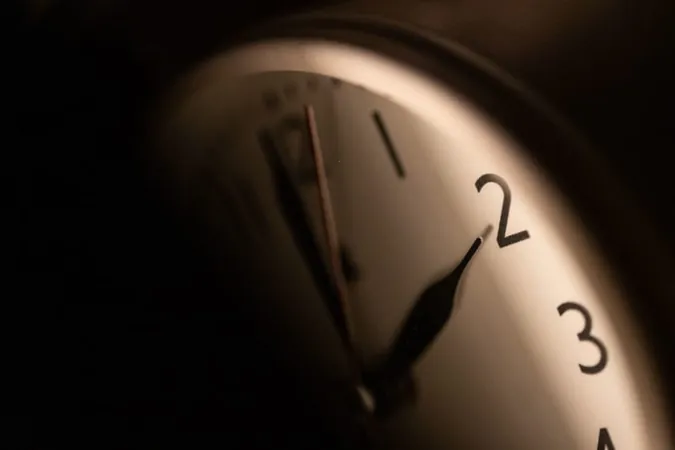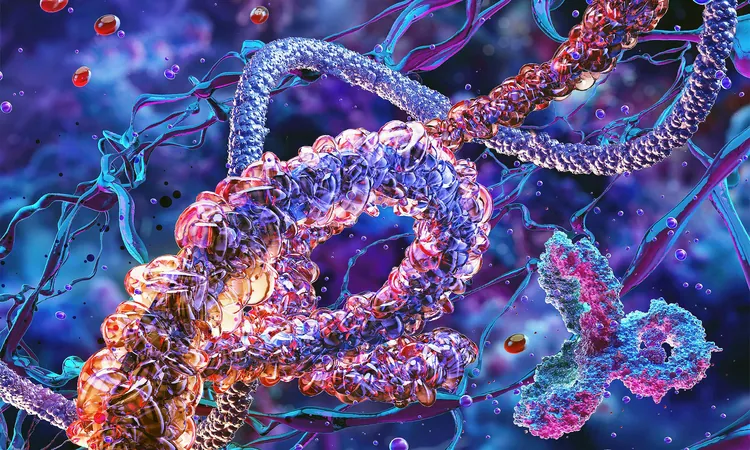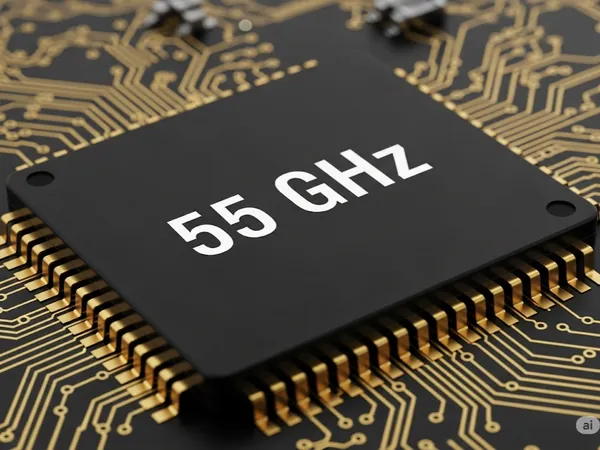
Revolutionizing Time: Scientists Unveil the Most Accurate Clock Ever
2025-07-22
Author: Wei Ling
For centuries, the adage that "time and tide wait for no man" has echoed throughout history, but now, time itself is taking a monumental leap forward.
After two decades of relentless development, scientists have unveiled a groundbreaking 'quantum logic' clock that is set to redefine precision in time measurement. This incredible device is capable of measuring time to a staggering 19 decimal places, rendering even the most luxurious wristwatch akin to a mere sundial.
In a landmark study published in the journal *Physical Review*, researchers at the U.S. National Institute of Standards and Technology (NIST) described how they engineered this revolutionary clock using quantum computing techniques. By pairing an electrically charged aluminum ion with a magnesium ion, they've achieved a timepiece that outshines all predecessors.
NIST proudly states that this new clock boasts an accuracy that is 41% greater than the previous world record, along with a tripling of stability compared to earlier atomic clocks. The former record-holder, a collaboration between NIST and the University of Colorado Boulder, was already capable of detecting the gravitational effects outlined by Einstein’s theory of general relativity on a microscopic scale.
What’s even more fascinating is that the clock has been in continuous development for the past 20 years. The advances made could potentially redefine the second itself, hinting at transformative scientific breakthroughs on the horizon.
According to NIST's David Hume, the new clock's ticks are even more stable than those of the traditional cesium-based timekeepers, which currently define a second in scientific terms. Fellow scientist Mason Marshall believes that refining our understanding of time may pave the way for new vistas in physics and our comprehension of the universe.
Since 1960, the second has been regarded as an international standard unit of time measurement, initially defined by the Earth’s rotation relative to the cosmos. However, variations in this rotation, influenced by gravitational forces from the Moon and other factors, complicated precise timekeeping.
To resolve these issues, the definition of a second was amended in 1967 to rely on atomic energy levels. With the advent of this new clock, another redefinition seems imminent, with NIST hinting at significant changes over the next decade.




 Brasil (PT)
Brasil (PT)
 Canada (EN)
Canada (EN)
 Chile (ES)
Chile (ES)
 Česko (CS)
Česko (CS)
 대한민국 (KO)
대한민국 (KO)
 España (ES)
España (ES)
 France (FR)
France (FR)
 Hong Kong (EN)
Hong Kong (EN)
 Italia (IT)
Italia (IT)
 日本 (JA)
日本 (JA)
 Magyarország (HU)
Magyarország (HU)
 Norge (NO)
Norge (NO)
 Polska (PL)
Polska (PL)
 Schweiz (DE)
Schweiz (DE)
 Singapore (EN)
Singapore (EN)
 Sverige (SV)
Sverige (SV)
 Suomi (FI)
Suomi (FI)
 Türkiye (TR)
Türkiye (TR)
 الإمارات العربية المتحدة (AR)
الإمارات العربية المتحدة (AR)